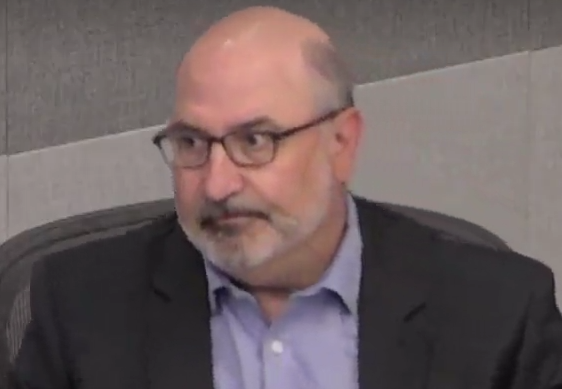 By Pepper Parr
By Pepper Parr
April 29th, 2020
BURLINGTON, ON
In normal times the administration of the city is in the hands of the City Manager who works at the will of council.
Council also issues Staff Directions which set out some very specific tasks they expect the City Manager to ensure gets done on time and within the budget.
But these are not normal times.
On March 21st, Mayor Marianne Meed Ward declared a State of Emergency and the role city council played going forward was severely diminished. When the province declared a State of Emergency that meant many of the instructions as to what a city had to do came from the province.
The City manager was, to a large degree bound by what the province was calling for.
So – what was a mere city councillor to do?
In Burlington several of the Councillors began to chafe a bit and worked on the city manager to get more in the way of information as to just what was happening day to day.

City manager Tim Commisso: With most of the power over local decision making – there might be some reluctance to give it back to council.
As Chair of what is known as the Emergency Coordinating Group (ECG) the city manager takes the steps he thinks are necessary to ensure the safe operation of the city and while city hall is closed to the public there are some people working on tasks that can only be done from within city hall.
The ECG is made up of a large number of people. They meet twice a day on-line and make sure that what needs doing is done.
My understanding is that the City Manager is now giving the city Councillors an update once a week as to what was done and why.
That information however is not being shared.
If the Councillors do have a weekly report they aren’t sharing that information with their constituents. One wonders why.
One could also ask why the City Manager doesn’t share those reports with the public.
An opinion piece in the Toronto Star on April 27th raised some serious questions under the headline: “Use of municipal emergency powers has gone too far.”
Anneke Smit and Alexandra Flynn argue that “meaningful, participatory governance has been thrust aside” in the name of keeping people safe while a virus kills hundreds across the province.
“Municipalities have very weak powers in Canada’s constitutional framework, cities are subject to provincial whims when it comes to both stable funding and political structures. Local governments are overlooked in conversations about democracy and governance, yet they are responsible for many of the decisions that most directly affect our daily lives.
“Canadian municipalities have made big decisions from the start of the crisis, such as enforcing physical distancing; dealing with the functioning — or not — of public transit; access to parks; and deciding whether to dedicate extra space for pedestrians and cyclists to name a few.
“Canada’s municipalities are not governed by a “strong mayor” system. This means that city council as a whole makes decisions, not just mayors. Provincial state of emergency legislation changes this. In most provinces, municipalities have the power to declare their own state of emergency. In its survey of 65 of the largest Canadian municipalities, the Canadian Urban Institute (CUI) counts 56 that have done so, in some cases for the first time in history, leaving mayors able to bypass city council votes and act unilaterally.
“While B.C.’s emergency legislation requires a mayor to consult the rest of council before they act, this is not the case in most Canadian provinces. CUI counts 10 of the surveyed cities having cancelled city council meetings during COVID-19 (including Toronto, Halifax, Windsor, Winnipeg and Edmonton). The cancellation or diminishment of council meetings means residents won’t know who made what decisions, which questions were asked, or hear staff advice, and decisions on many key issues not immediately related to the pandemic are simply being postponed.
“What is more, 28 of the municipalities have also cancelled committee meetings, and 34 have cancelled public consultations. These meetings are the backbone of local democracy. They give the public a chance to directly weigh in on issues that matter to them in their communities.
“In the early stages of the pandemic, decisions had to be made quickly. A single, authoritative voice on behalf of a government was arguably necessary. Five weeks later, much of the dust has settled, and we are left with unaccountable local decision-making in many communities and no immediate end in sight to states of emergency.”
That pretty well sets out what is taking place in Burlington.
It doesn’t have to be this way – the elected members of council can agitate and advocate for a more open process – and those with the courage to do so might better serve their constituents by being more vocal.
All seven were elected and they speak as the will of council.
The Gazette for one would like to hear that will expressed verbally.

Elected less than two years ago – they have now let someone else make the decisions.
Related news stories:
Mayor declares State of Emergency
What does a State of Emergency mean?














